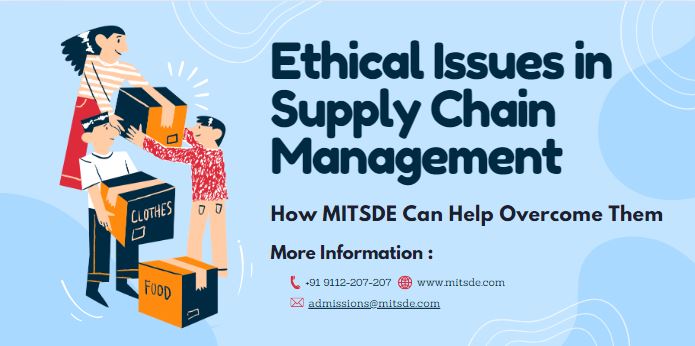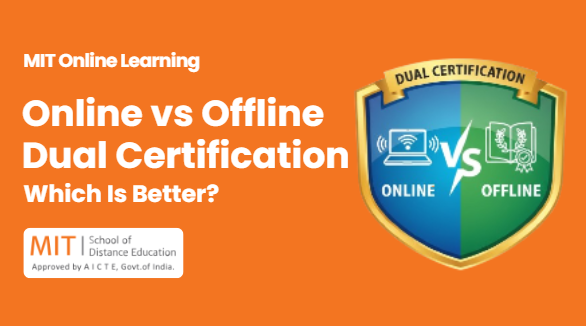
Supply Chain Management (SCM) plays a crucial role in the success of any business, but it also presents significant ethical challenges. Companies today must navigate complex issues like labor practices, sourcing, and environmental impact while maintaining profitability and competitiveness. Let’s explore these ethical challenges in more detail and discuss how MITSDE’s PGDM in Supply Chain Management equips professionals to address them responsibly.
1. Labor Practices
Ethical Challenge
Labor practices in supply chains have been under scrutiny for years, particularly in industries where outsourcing to low-cost regions is common. Issues like child labor, unsafe working conditions, and unfair wages can tarnish a company’s reputation and lead to legal consequences.
Responsible Approach
Companies must ensure that their suppliers adhere to ethical labor standards. This includes conducting regular audits, providing fair wages, ensuring safe working conditions, and eliminating child and forced labor from their supply chains.
How MITSDE’s PGDM Helps
MITSDE’s PGDM in Supply Chain Management emphasizes the importance of ethical labor practices in the curriculum. Students learn about global labor laws, ethical sourcing strategies, and how to conduct supplier audits. The program also covers corporate social responsibility (CSR) initiatives, empowering future supply chain managers to create and enforce ethical labor policies.
2. Sourcing and Supplier Relationships
Ethical Challenge
Sourcing materials and components from different parts of the world introduces risks related to the ethical behavior of suppliers. Issues like corruption, exploitation, and lack of transparency can compromise the integrity of the supply chain.
Responsible Approach
Companies should build strong, transparent relationships with suppliers who share their ethical values. This includes selecting suppliers based on ethical criteria, fostering long-term partnerships, and encouraging suppliers to adopt sustainable practices.
How MITSDE’s PGDM Helps
The PGDM program at MITSDE covers supplier relationship management, emphasizing the importance of ethical sourcing. Students learn how to evaluate suppliers based on ethical standards, negotiate contracts that include ethical clauses, and develop long-term partnerships. The program also introduces students to tools and technologies that enhance transparency and traceability in the supply chain.
3. Environmental Impact
Ethical Challenge
The environmental impact of supply chains is a growing concern. From excessive carbon emissions to waste generation and resource depletion, companies must address the ecological footprint of their operations to remain sustainable and socially responsible.
Responsible Approach
Companies can reduce their environmental impact by adopting sustainable supply chain practices. This includes optimizing transportation routes, reducing waste, sourcing eco-friendly materials, and investing in renewable energy.
How MITSDE’s PGDM Helps
MITSDE’s PGDM in Supply Chain Management includes modules on sustainable supply chain management. Students are taught how to design and implement green supply chain strategies, evaluate the environmental impact of supply chain activities, and leverage technology to reduce carbon footprints. The program also emphasizes the importance of aligning supply chain strategies with broader corporate sustainability goals.
Conclusion
Ethical challenges in supply chain management are complex and multifaceted, but they can be effectively addressed through responsible practices and informed decision-making. MITSDE’s PGDM in Supply Chain Management is designed to equip future supply chain professionals with the knowledge and skills needed to navigate these challenges. By emphasizing ethical labor practices, responsible sourcing, and sustainability, MITSDE prepares students to lead supply chains that are not only efficient and profitable but also ethical and sustainable.
Graduates of this program will be well-prepared to make a positive impact in the field, ensuring that their organizations can thrive while upholding the highest ethical standards.



